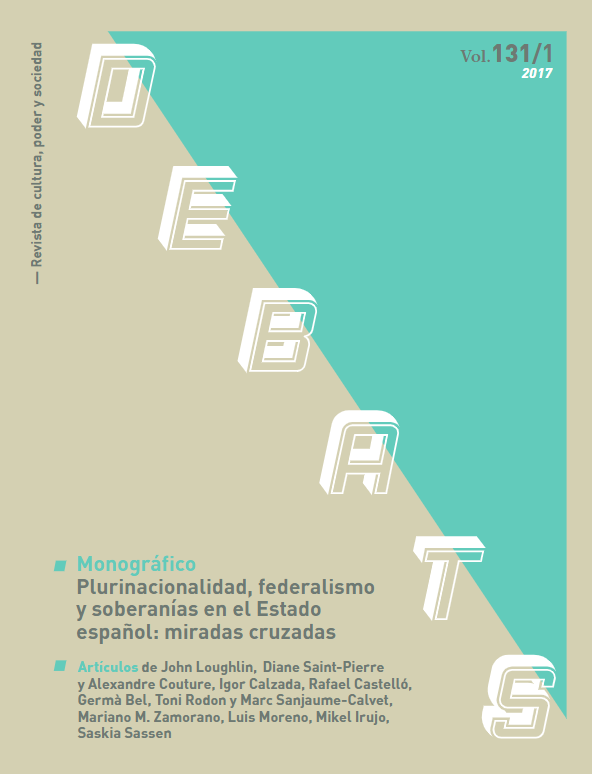States, Nations and Societies. The Valencian Case
Abstract
Political action of contemporary western societies has been structured based on a definition of territorial units of action, which we call states. This westerns political structure has been legitimized from linking each state a collective holder of sovereignty, which we call nation. Social life develops in relationship fields linked to different areas of community life, such as production, consumption, distribution of work, etc., involving also the discursive structures talking about the practices. The experience of social practices occurs in the complex interaction between all these fields of relations, which we call social structure. Each of these collective forms (states, nations, social structure) outlined several geographic and social areas, to facilitate or/and hinder the construction of certain collective identities and, therefore, facilitate or/and hinder the production of certain collective actions.
In the first part, this article proposes a discussion on the relationship between the concepts of state, nation and social structure. Later, the article tries an empirical application of the theoretical discussion in the Valencian case, to reveal the mechanisms that have worked in the construction of their collective identity.
Downloads
Downloads
Published
How to Cite
Issue
Section
License
Without prejudice to the provisions of article 52 of Spanish Law 22/1987 of November 11 on Intellectual Property, BOE (official state bulletin) of November 17, 1987, and pursuant to said legislation, the author(s) surrender(s) free of charge its rights of edition, publication, distribution and sale of the article, for its publication in Debats. Journal on Culture, Power and Society.
Debats. Journal on Culture, Power and Society is published under the Creative Commons license system in accordance with the «Recognition - Non-Commercial (by-nc) modality: The generation of derivative works is permitted provided that commercial use is not made. Nor can the original work be used for commercial purposes».
Thus, when the author submits his/her contribution, he/she explicitly accepts this assignment of publishing and publishing rights. Authors also authorize Debats. Journal on Culture, Power and Society to include their work in an issue of the journal to be distributed and sold.











